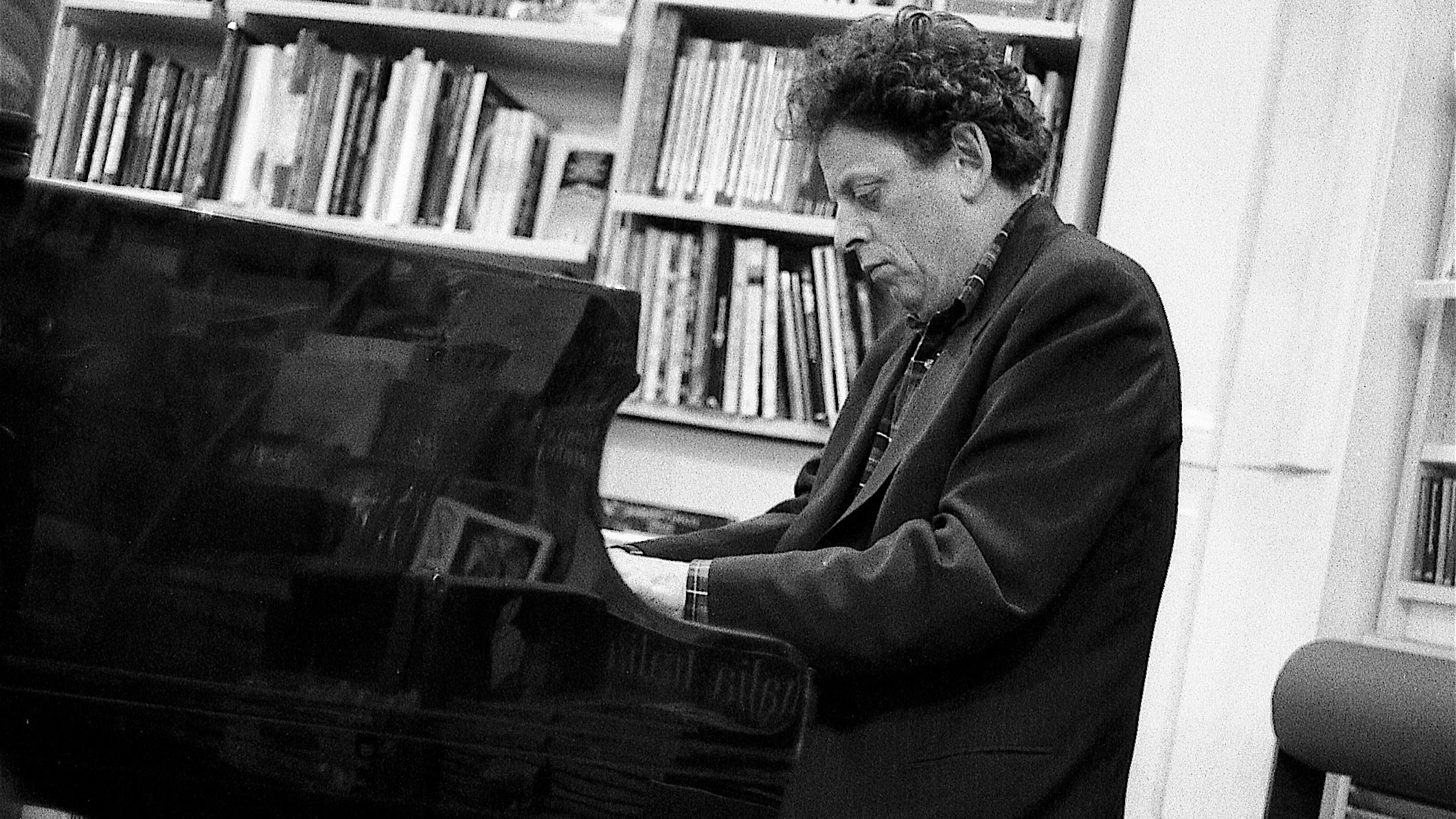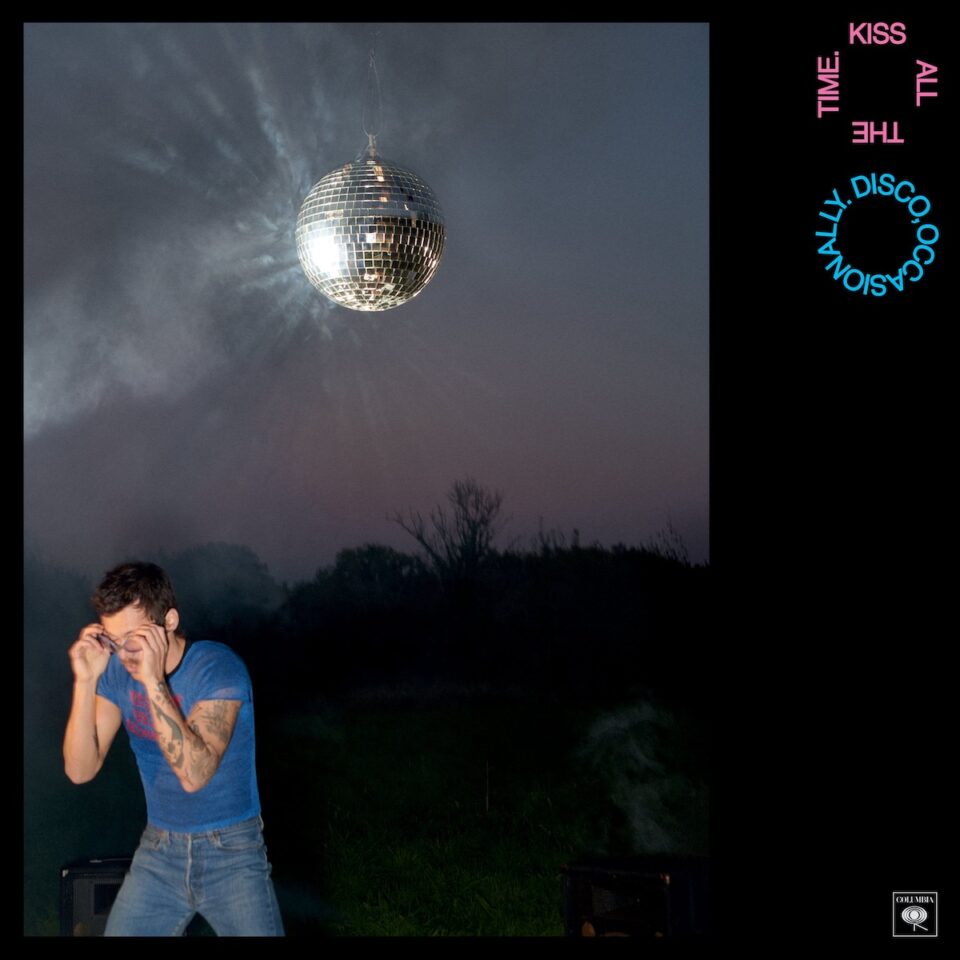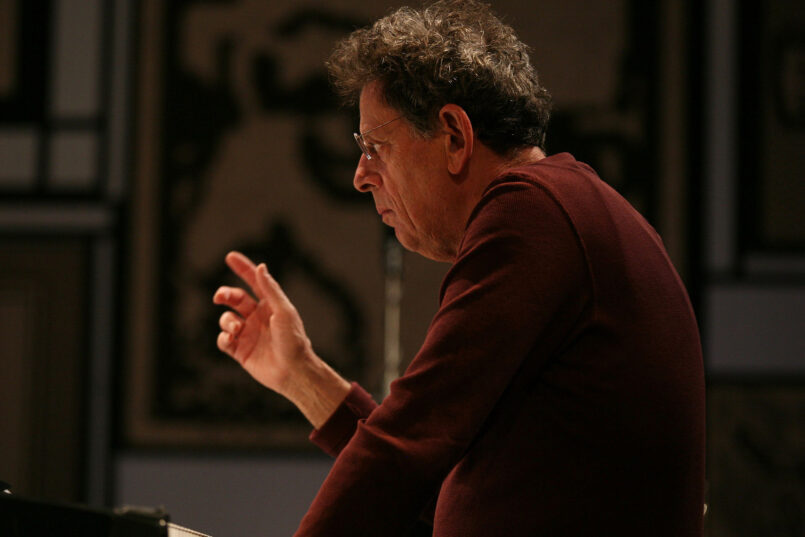1. Philip Glass, the titan of modern classical music and composer of considerable versatility, grew up in a record store. His father, Ben, ran a radio-repair and retail store on Baltimore’s S. Howard St. called General Radio. There, Glass and his older brother Marty were in charge of damaging overstocked 78s that Ben would then return to the record labels for refunds. Glass, to his infinite credit, doesn’t ruminate on the allegorical implications of this detail in his memoir, Words Without Music. He lets it sit there, quietly gathering thematic weight as he tells his story. His first job was destroying what came before him.
2. Glass left home for the University of Chicago at fifteen. While in school, he saw acts as varied as the Budapest String Quartet and Odetta, Charlie Parker and Billie Holiday. He mentions these artists with great respect, but he reserves special honors for Ornette Coleman, who, as Glass puts it, “was just up from Louisiana playing his white plastic saxophone at the Five Spot” when Glass was a student at Juilliard. He’d next move to Paris to study with Nadia Boulanger—the famed French teacher who relentlessly drilled him in technique and mechanics. The two poles of Boulanger’s intimate tutelage and the “flow of energy that seemed unstoppable, a force of nature” that he heard in John Coltrane and Bud Powell and Charlie Parker exerted a profound influence on his musical identity.
In Charlie Parker and Bud Powell, he heard a “flow of energy that seemed unstoppable, a force of nature.”
3. After finishing his studies with Boulanger, Glass married JoAnne Akalaitis in Gibraltar as the two began a lengthy pilgrimage to India. In Words Without Music’s telling, it was the simple, logical choice: “Both of us also took getting married and having children very seriously,” he writes. “What we were talking about was sharing a family and working together. In the end, our professional relationship has lasted over fifty years.” Later, when the pair divorce, Glass treats it as an aside. There’s no indication as to how separating from his creative and romantic partner of fifteen years affected his work or his emotional life. Apart from his ruminations on Satyagraha, his opera about Gandhi, we don’t get much of an understanding of how his religious practices (Glass follows three distinct belief systems and writes deeply of his studies) might have informed his work, either. It’s as if there’s a gulf separating his personal life from his artistic life. Which might be the case. But why is the gulf there? Who created it?
4. Glass the artist is at his best when he’s explaining the motivations behind his music. Spending time studying under Ravi Shankar and Alla Rahka while in Paris helped him to bend the Western music staff to accommodate Eastern sounds and textures. Listening to John Cage and reading Samuel Beckett taught him how to get to “the power of romance literature without the story of the romance.” Frank Zappa gave him the courage to amplify his music, which at the time was still unheard of in the classical world: “In Europe, what was being presented as new music at that time was intellectual—abstract, quite beautiful, but with very little emotional punch to it. I wanted music that would be the opposite of that.” Glass presents himself simply as a composer who created what he wanted to hear, which in turn makes genius seem incredibly simple, almost local. One thinks of C. S. Lewis: “Even in literature and art, no man who bothers about originality will ever be original: whereas if you simply try to tell the truth (without caring twopence how often it has been told before) you will, nine times out of ten, become original without ever having noticed it.”
5. Glass the man is at his best when talking about his contemporaries. He’s forever in awe of other people’s abilities. He describes his heavy welding work with sculptor Richard Serra as “an irreplaceable experience” and speaks in great depth about their creative partnership. Robert Rauschenberg and Jasper Johns “were monumentally important” to the young Glass, particularly the latter’s attention to minute detail in an abstract setting. While working for Serra, the two were commissioned to install an art piece in Johns’ home. At the time, Johns was hosting John Cage, and the foursome—Johns, Cage, Serra, and Glass—would have lunch together every day. “It was very good company,” Glass says with incredible understatement.
“Openings and closings, beginnings and endings. What is real to us becomes forgotten, and what we don’t understand will be forgotten, too.”
6. Words Without Music unfolds across three parts and twenty-one chapters, with each chapter feeling distinct from and almost entirely unconnected to its predecessor. Over time, these episodes make for a tiresome read. They lack the emotional heft that one expects from a memoir. Until it ends. The twenty-second chapter, aptly titled “Closing,” finds Glass suddenly pulling all of his loose threads together. “Openings and closings, beginnings and endings,” goes the refrain that unites the chapter’s anecdotes and musings. “What is real to us becomes forgotten, and what we don’t understand will be forgotten, too.” He reflects on how his relationship to composition has changed: “I’m not thinking about music, I’m thinking music.” Of his friend and collaborator Allen Ginsberg he says “To say that Allen ‘passed on’ or ‘died,’ which of course he definitely has, does not capture for me the emptiness that his leaving has left behind.” And he ends with Ben, his father, teaching him to ride a bike. It’s a nice tribute to the narrative strategy he inherited from Beckett, this complete divorce of the memoir’s emotional arc from its narrative arc. But it takes so long to get there, and the journey can be so dry. For much of the time, Words Without Music is exactly that. FL








